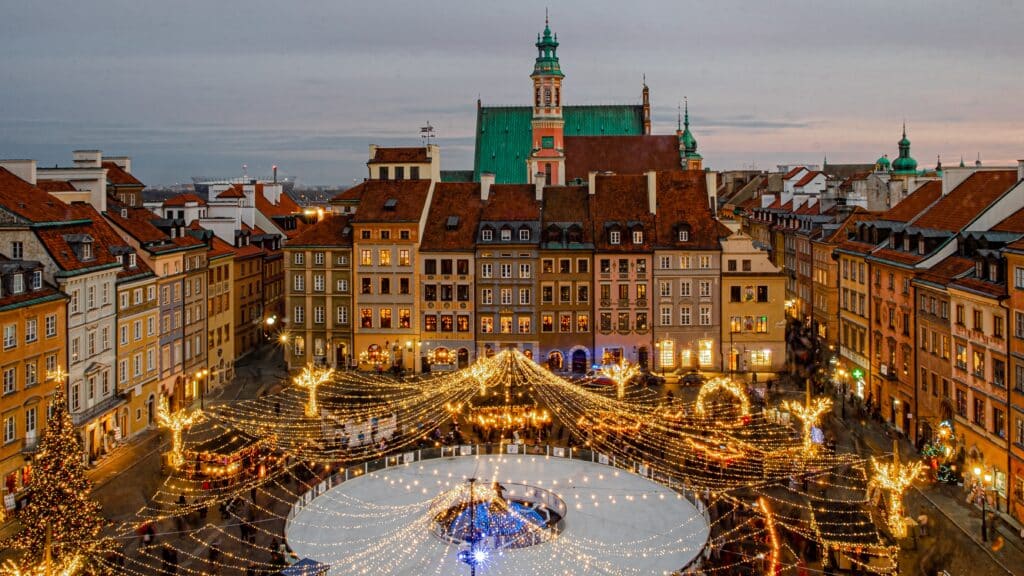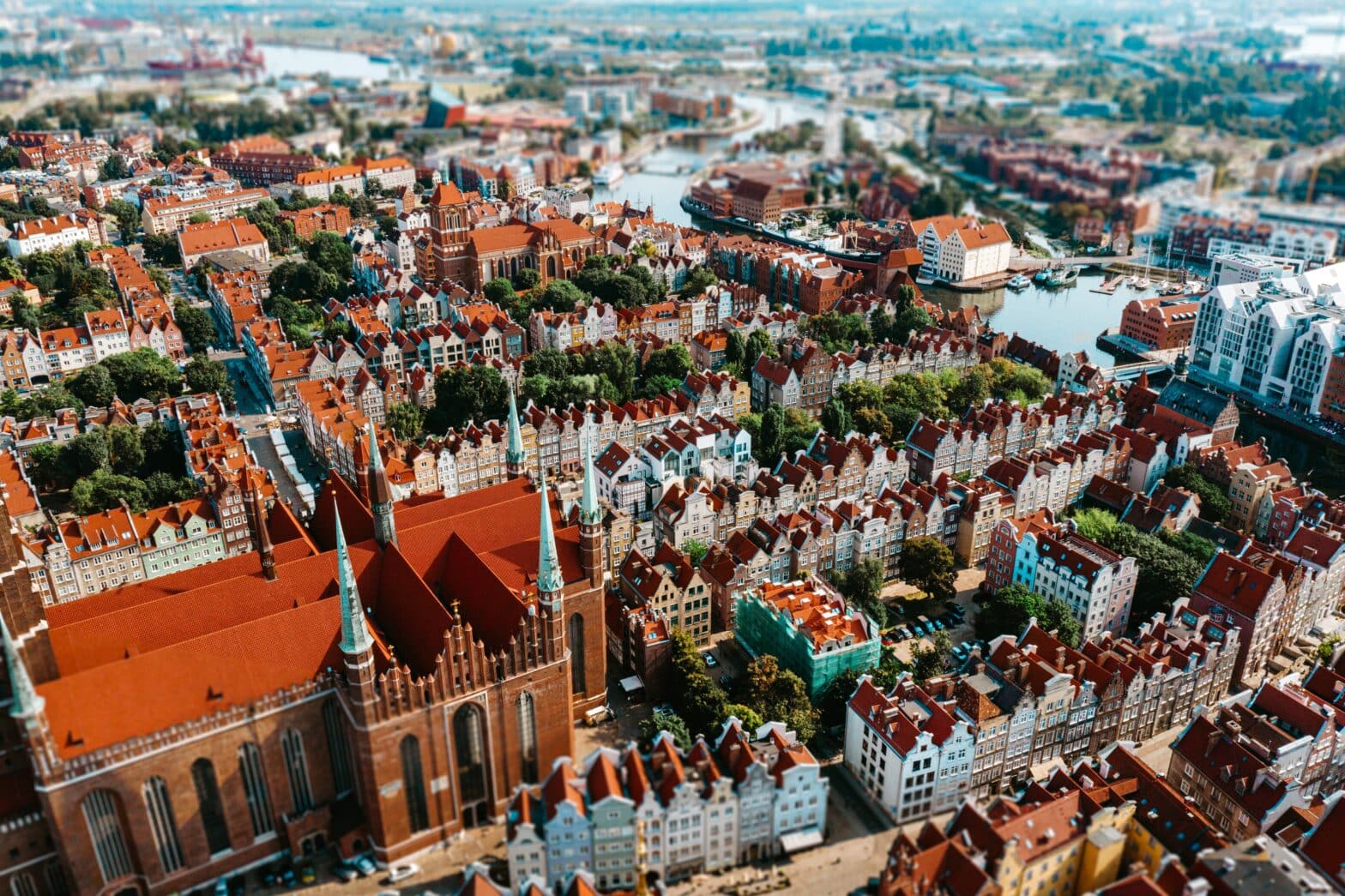With its booming economy, cultural heritage and natural treasures, Poland is attracting expatriate workers and foreign companies alike. From the beaches of the Baltic Sea to the mountains of the Carpathians and bustling metropolises, this former communist country, now a member of the European Union, has much to offer.
So what’s life like in Poland as a foreigner? Why choose this country to live as an expat destination? What are the requirements to relocate there? Foyer Global Health has put together a guide to help you make a good start in the heart of the Old Continent.
Moving to Poland: what are the pros?
Poland has emerged as a popular destination for expats for a number of reasons:
- Affordable cost of living: Compared to many other European countries, Poland boasts a low cost of living. From reasonably priced food to affordable public transport, living expenses are reasonable.
- A strategic geographical location: Poland is located in the heart of Europe, at the crossroads of Western and Eastern Europe. This opens up good opportunities for travel and business.
- An exceptional musical heritage: Poland is renowned for its rich musical legacy. The country has produced famous composers such as Chopin, Szymanowski, and Lutoslawski. Music has played a central role in Polish culture for many years.
- Nature is everywhere: between the Baltic coast, the national parks and the Carpathian mountains, Poland is home to scenic natural sites. Even within urban centers, Poland ensures an abundance of green spaces.
- A modern, safe and well-developed transport network
- Staple culinary delights such as pierogis (dumplings), bigos (hunter’s stew) and kielbasas (sausages).
- Poles are welcoming people
- A wide range of cultural and sporting activities (concerts, walking, hiking, cycling, restaurants, exhibitions, etc.) are available all year round
Moving to Poland: some key formalities
As Poland is a member of the European Union, citizens from EU countries don’t need a visa to settle in Poland. However, if you plan to stay in the country for more than than three months for work or retirement, it is mandatory to register with the urzad wojewodzki (voivodship office) in your place of residence.



Third-country nationals should contact the Polish consulate or embassy in their current country of residence to obtain the appropriate visa or residence permit that aligns with their profile and situation.
Regardless of your nationality, as an expat relocating to Poland, you will need to obtain a certificate of residence as well as a NIP (tax identification number) and PESEL (personal identification number). These steps are essential to complete a number of procedures related to your move.
Useful link:
Ministère des Affaires étrangères
Working in Poland
A major player in European and international trade, Poland boasts one of the highest GDPs in Europe and attracts significant foreign investment. With a competitive skilled workforce, the country offers numerous career opportunities for expats across various sectors, including information and communication technologies, tourism, renewable energy and services. Europe’s eighth-largest economy is home to technology giants such as Google, which serve as major sources of employment.
To find job opportunities in Poland, you can leverage international networks such as LinkedIn, Polish job search sites such as Praca or engage with local recruitment agencies. Poland’s strategic position at the heart of Europe makes it an attractive destination for setting up your own business. In fact, for many years, numerous foreign companies have chosen to invest in Poland and establish their businesses there.
If you’re interested in setting up your own company in Poland, you can find information here.
Language

Polish is the official language of Poland, but in major cities like Krakow and Warsaw, many locals speak English. Proficiency in English is essential for working in any sector in Poland. Learning Polish will, however, help you integrate into the professional world and Polish society. Some expats believe that Polish language acquisition counts among the disadvantages of relocating to Poland.
Accommodation
When it comes to accommodation, Poland offers a wide range of options, including furnished flats, houses, residences and shared flats. When taking into account an expatriate’s income, compared to other European countries, rents are generally affordable in most Polish towns and cities. It is important to consider, however, that rental prices in city centres of major cities such as Warsaw and Krakow, tend to be much higher than in other parts of the country.
Many expatriates choose to settle in Warsaw, the vibrant Polish capital, for its incomparable dynamism, or in Krakow, renowned for its cultural heritage. Additionally, foreign students often come to these cities to pursue courses or training for a semester at university.
If you are not fluent in Polish, we recommend engaging the services of an estate agent, who can guide you in your search for accommodation and to ensure that your rental contract is in order. Real estate platforms such as Morizon or Otodom can also be valuable resources in finding suitable accommodation options.
The cost of living
In comparison to many European countries, Poland offers a relatively low cost of living. The national currency is the zloty (PLN). One zloty is equal to around €0.22. Currently, the cost of living in Poland is estimated to be 39% lower than in France. Expenses for food and leisure are comparatively less significant than in other European countries. For a family, the average monthly food budget is around €400. In 2023, the average gross monthly salary is projected to be approximately 7125 zlotys (€1602), which is notably lower than the average gross monthly salary in other Western European countries.

Healthcare
Poland operates a universal and mandatory public polish health insurance system known as Narodowy Fundusz Zdrowia (NFZ), which provides basic cover for public health services. However, due to recurring issues such as patient overload and long waiting times in the public sector, expatriates often opt for private international health insurance. This type of insurance covers them in the private sector in Poland as well as abroad and allows access to comprehensive health services in no time. For further information about the Polish healthcare system, please click here.
Opening a bank account
As an expat, all you need to open a bank account is proof of residence, a PESEL number and identification. You can access banking services at such as Millennium Bank or ING Bank.
Best places to visit:
- Warsaw, the Polish capital, known for its historic old town, Royal Way, Palace of Culture and Science and vibrant jazz clubs.
- Krakow, one Central Europe’s most enchanting cities, featuring its stunning Old Town and the Czartoryski Museum
- Malbork Castle, one of Europe’s largest medieval castles
- Wrocław with its magnificent bridges
- The breathtaking Mazurian lakes
- The Tatra Mountains, the highest peak in the Polish Carpathians, ideal for experienced hikers, especially in early autumn
- The picturesque port city of Gdansk all year around
- The Jasna Góra monastery in Częstochowa, housing the revered icon of the Black Madonna
- Oswiecim and the Auschwitz concentration camp
